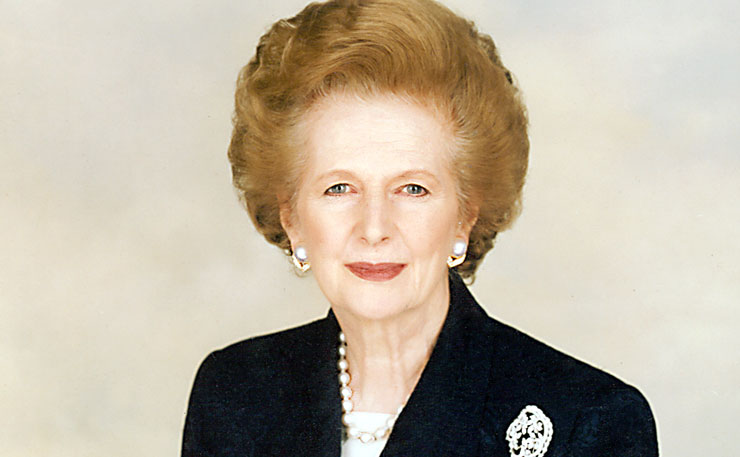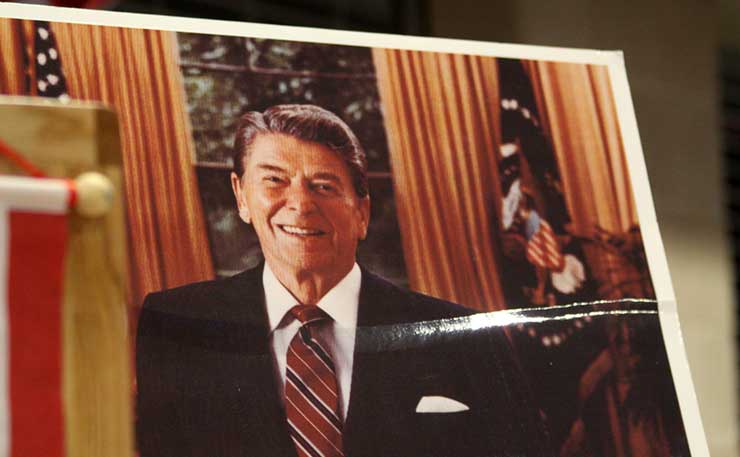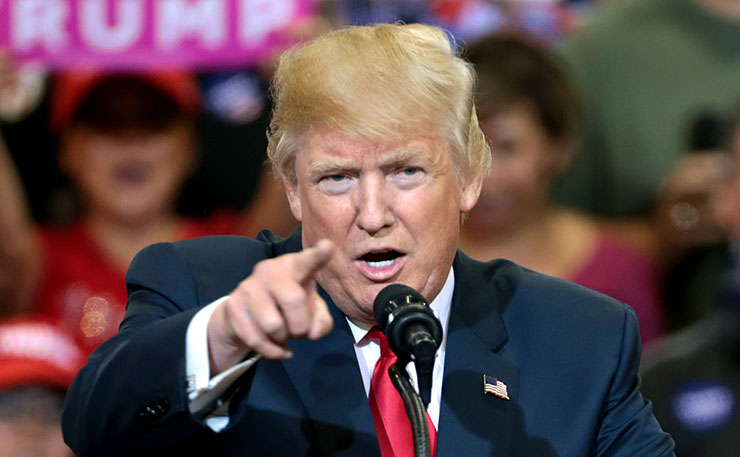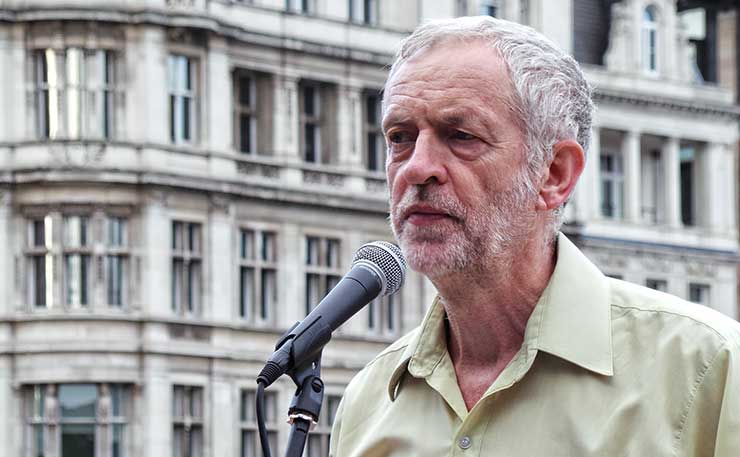Naked capitalism has had its day. Or has it? Dr Richard Hil explores a history of greed and wealth creation for the one per cent.
I’ve spent quite a bit of time lately reading books and articles about the spread of neoliberal ideology across the globe. I’ve been particularly interested in two central questions. How on earth did this simplistic, dehumanizing, market obsessed, greed-is-good worldview gain such ascendency? And, which organisations, individuals, groups and institutions were behind this?
Like most stories of hegemonic dominance, there is no single plot or author. Some attribute the origins of neoliberalism to economic stagnation and the supposed over-regulation of social democratic economies in the post-war era. Others point to the constraints imposed by Keynesianism, socialism, statism and other renditions of the command economy. Still others allude to the union movement, often recalling the 1978-9 British “winter of discontent”, under the then Labour government of James Callaghan, as evidence of the apparent failings of a union dominated administration and, by extension, the need for “industrial reform”.
Masters of the universe
Many of these explanatory accounts have been underpinned by a particular view of labour-capital relations in a market driven economy. For conservatives, organised labour is considered an obstacle to the entrepreneurial spirit and therefore an anathema to productivity, competitiveness and economic growth.
This view was peddled assiduously by former British Prime Minister, ‘Iron lady’ Margaret Thatcher, who memorably referred to the National Union of Miners as “the enemy within”, a view which, for her and others, included the entire union movement.
Such opposition to organised labour was inspired in part by a tendency to mythologise a golden age of laissez faire capitalism. That paragon of the Scottish enlightenment, Adam Smith, has been frequently cited as providing the ultimate intellectual justification for the free market, even though – as Noam Chomsky points out – he warned of the dangers of an unregulated economy presided over by the “masters of the universe”.

Like most grand theorists, Smith was a person of many contradictions, advising governments to get their noses out of private business – “let them look well after their own expense, and they may safely trust private people with theirs” – while also reminding us that “All for ourselves and nothing for other people, seems, in every age of the world, to have been the vile maxim of the masters of mankind.”
No such qualms about this “vile maxim” featured among those post-war European intellectuals who considered the concentration of power in the hands of politicians, government officials and unions, utterly intolerable. Indeed, the very idea of government was and is viewed by libertarian observers as running counter to those great liberal shibboleths of freedom and liberty. For them, the role of government should be restricted to the security of citizens and key institutions, as well as ensuring the necessary conditions for the free flow of capital.
Heart and soul takeover
With all this griping and sniping, and the tetchiness of rentier seeking capitalists, it was perhaps inevitable that a new form of radical conservatism took hold in the late 1970s. But it didn’t emerge simply as a reaction to so-called Keynesianism.
Indeed, former Labour Party leader James Callaghan would set in train a series of proto-austerity policies that laid the foundations for what was to come under Margaret Thatcher and later, across Europe. Meanwhile, the progressive Left struggled to offer a persuasive counter-narrative: a compelling story of how to resist the neoliberal juggernaut and the politics of austerity.
Influenced heavily by the writings of Frederick von Hayek, Milton Freidman and other libertarian economists, a new breed of conservative politicians, led by Margaret Thatcher in Britain and Ronald Reagan in the US, sought to dismantle what they saw as the pernicious influence of socialism on their respective economies. They argued for deregulation, privatisation, the outsourcing of public services, and the diminution of union power.
For Thatcher, the conservative revolution over which she presided in Britain was more than a simple matter of economics. It was accompanied by strong nationalist sentiment and a desire to restore Britain’s standing as a global power, a theme repeated in Trump’s recent ascent to power.
But when she suggested that “economics is the method; the object is to change the heart and soul”, Thatcher was proposing a fundamental change to the prevailing order. Her vision entailed revolutionising how we think and feel about ourselves and others, to define citizens as creatures of consumption and competitiveness rather than members of a community or society. There was no room here for sentiment, and certainly no mention of cooperation, caring and sharing.

In a 1987 interview with Woman’s Own Magazine, Thatcher declared, “… there is no such thing as society. There are individual men and women, and there are families”. The role of such, she insisted, was purposeful self-reliance so that people would no longer rely on the “nanny state”.
No government, she argued, “… can do anything except through people, and people must look to themselves first. It’s our duty to look after ourselves and then, also to look after our neighbour. People have got the entitlements too much in mind, without the obligations. There’s no such thing as entitlement, unless someone has first met an obligation”.
This early rendition of our very own former treasurer’s proclamation of “the end of the age of entitlement”, was of course the precursor to mass privatization and deep cuts to public expenditure, as well as a full-scale assault on organized labour.
At the same time, it opened the door to the entrepreneurial buccaneers, those neo-Darwinian “go-getters” dedicated to the pursuit of wealth creation. Hyper individualism was to be the backbone of the new economic order. Society didn’t exist and caring was for wimps. This was the free market on steroids.
Grand design
How such ideas came to the fore is a most intriguing story, much of it told through the work of historians and social scientists. The fact that academic neoconservative, Francis Fukuyama, could assert in 1989 that we had reached “the end of history” insofar as the liberal democratic state constituted the final say on political order, or that Thatcher could proclaim that “there is no alternative” to market fundamentalism, revealed the self-assuredness of the ruling elites.
But as we’re beginning to discover, the dominance of neoliberalism came about not by accident, but through careful design, presided over by a gaggle of billionaires, conservative politicians, academics and rabid ideologues. The fact that key positions in institutions across liberal democratic states were headed by people with a common neoliberal interest, meant, as Owen Jones and others have noted, that the neoliberal project could be coordinated and imposed from above.
So much so in fact, that Tariq Ali refers to today’s Western political culture as enfolded around the “extreme centre” with both “Left” and “Right” mainstream parties embracing neoliberal policies that have essentially jettisoned the idea of sovereign government in favour of the “global market”.
This resulted in the shift of Left leaning parties to the Right, hence Tony Blair’s enthusiastic support for privatisation policies under the rubric of “New Labour”, and in Australia the introduction of market-based policies under the Hawke-Keating administration.

But how exactly did this come about? Two recent books in the US shed considerable light on this question. Nancy Maclean’s Democracy in chains and Jane Mayer’s Dark money trace the organised takeover of the US government, led and funded by a cabal of some the nation’s richest and most powerful individuals.
They attracted like-minded people to the fold: academics, business leaders, politicians, media moguls and so forth. Some of these were radical libertarians, deeply opposed to the idea of government regulation and tax. Their agenda, such as it was, was to divest the state of its power and to dismantle all public services, thereby reducing the role of the neutered state to overseeing the financial and material infrastructure necessary to buttress corporate power.
The reality however, was very different. The state continued to play a central role, although this time its purpose was not the pursuance of a social democratic agenda, but rather to ensure the pre-eminence of corporate capital in all economic affairs. In that it largely succeeded.
As McClean and Mayer note, several factors ensured the dominance of neoliberalism from the early 80s onward.
First, the neoliberal cabal was able to organise itself around a core set of values and ideas culled from the work of leading free market theoreticians located mainly in universities, institutes and think tanks. Despite many disagreements, they were adept at articulating a broad set of principles such as “freedom”, “liberty”, “choice”, the “free market”, along with libertarian mantras such as lower taxes and deregulation.
These were the foundations of Hayek’s vision of “spontaneous order” emerging – so we’re told – from a world of unfettered competition and individual acquisition.
For Von Hayek, the free market was “a more efficient allocation of societal resources than any design could achieve” and any “claim for equality of material position can be met only by a government with totalitarian powers”.
Second, the neoliberal cabal mustered billions of dollars to fund not only think tanks but also over 10,000 conservative foundations that promoted the message of free market fundamentalism. Academic positions, research centres and institutes were funded generously, as were the campaigns of leading politicians.
Third, funds were also directed toward conservative campaigns which could spread the neoliberal message at local, state and national levels. These campaigns were often depicted as “grassroots” movements, giving the impression of a groundswell of support for core neoliberal ideas.
Fourth, intellectuals allied to the billionaire cabal were acutely aware of the power of language. They made every effort to conceal the true intentions of the fundamentalist program, preferring to apply seemingly benign nomenclature to think tanks and foundations.

Today one of the most well known is the Heritage Foundation, which plays a key role in shaping the Trump administration’s foreign and domestic policy agenda.
In short, the revenue stream provided by these billionaires has greatly advanced the neoliberal agenda. For reasons of secrecy and obfuscation, it’s difficult to know exactly how much was spent pursuing this agenda, but it probably runs into the tens of billions.
Add to this the funds needed to establish think tanks and to run political campaigns, and not forgetting the central role of the corporate media, and it’s easy to understand how neoliberal ideas came to permeate public discourse.
Bankrolling neoliberalism
The wads of cash funnelled to the Republican campaign during 2016 election campaign offer a revealing insight into the influence of the rich and powerful. Cashed-up donors included Charles and David Koch (worth over $100 billion), Sheldon Adelson ($29 billion), Foster Friess ($530 million), Paul Singer ($1.92 billion), Norman Braman ($1.89 billion), and Ken Langone ($2.7 billion). And let’s not forget the reclusive hedge fund tycoon, Robert Mercer, who (in addition to bankrolling Ted Cruz, Steve Bannon and the ultra-conservative Heartland Institute and the anti-liberal CNSNews site) donated $13.5 million to the Trump campaign.
Hilary Clinton of course had her own super-wealthy benefactors too, such as Warren Buffett, Meg Whitman, Oprah Winfrey and ex-New York mayor, Michael Bloomberg. According to the Washington Post the Clinton campaign received $1.4 billion while the Trump campaign only managed to muster $957.6 million. The money splashed around during the presidential campaign reflects the degree to which corporate donations and a culture of mutual reciprocity helped shape the political landscape.
Ideological tanks
There’s nothing earth shattering about all this; it’s the way of many liberal democratic states, including Australia. The more important point here is that the political elites in the US and elsewhere have operated in a highly conducive ideological climate established over the last 40 years. Think tanks have played a vital role in this regard, ensuring that alternatives to market fundamentalism have been, if not eradicated, then certainly marginalised in terms of “mainstream” debate.
In the US, think tanks like the Heritage Foundation, American Enterprise Institute, Manhattan Institute for Policy Research, Cato Institute, Hoover Institution and the Federalist Foundation have faithfully followed Von Hayek’s prompting that free market economics would prevail through a “war of Ideas”.
This war has raged across many western countries with the economic and political elites leading the way. There are many such entities – some estimate 400 across the globe. In Britain, they include the Centre for Policy Studies and the Conservative Monday Club; in France the Cercle de l’Oratoire and the Institut Constant de Rebecque; in Italy FareFuturo; and in Australia the Menzies Research Centre, the Institute of Public Affairs, the Sydney Institute and the Centre for Independent Studies.
These conservative hot houses organise regular forums for the dissemination of neoliberal ideas, as well as contributing to policy deliberations through research reports, media commentary and so forth. Their power derives not simply from the crude imposition of a worldview, but rather by asserting a set of ideas that seem both reasonable and irresistible.
No other body of thought, they insist, comes close to providing the conditions necessary for socio-economic stability, hence the continued denigration of socialism, communism – whatever. Words like “freedom”, “enterprise” and “liberty” oil the wheels of this ideological juggernaut, as do universal claims that there is no alternative, when clearly there is.
Beware the chameleon
The project to colonise people’s hearts and minds is pivotal here. It’s what the great American sociologist C. Wright Mills recognised long ago in his trail blazing analysis The Power Elite (1956).
For Mills, the military, political and economic elites that governed the US derived their collective power based on the belief that, “… without conscious effort, they absorb the aspiration to be… The Ones Who Decide.” In the current era the “Ones who Decide” come from broadly similar class backgrounds and possess what David Harvey refers to as “shared mentalities” that foster a sense of entitlement and a chauvinistic belief in how the world should be ordered.
The main problem now facing these elites is the decline in public confidence in liberal democratic institutions that have granted them so much power for so long.
Many people no longer believe in “democracy” or the elites who have governed Western societies for decades. How could they, given such massive economic disparities, wage stagnation and austerity policies?
Financial instability, corporate greed and the threat of climate change have added to public disapproval, giving rise to a range of new progressive and reactionary movements. Brexit, Trump and various nationalist movements across Europe are symptomatic of the uglier side of this political transformation.

In all likelihood, this is a temporary phenomenon, fully exposed only when reactionary political parties reveal they have nothing to offer other than division.
The more significant social movements of our time are made up of the tens of millions who seek environmental and social justice. Indeed, the ‘Blessed unrest’ and ‘Great awakening’ that have come to signify the global movement of progressive change seem unstoppable. It’s why Noam Chomsky urges optimism rather than despair, and why Naomi Klein has so enthusiastically endorsed the Leap Manifesto in her recent book, No is not enough.
What’s needed is a persuasive and practical story of social change that not only rages against actions of the economic and political elites, but which offers a clear sense of what it is we are trying to achieve.
There are many suggestions in this regard, all underpinned by a belief that we are on the cusp of a post capitalist, post-neoliberal future. Signs of this are everywhere: in Paul Keating’s recent admission that neoliberalism has “runs its course”, in the progressive politics of Jeremy Corbyn, Bernie Sanders, the Green party, in other progressive entities across the globe like the Five-star movement in Italy and Podemos in Spain, and in the anti-neoliberal movements in South America and throughout Asia.
Indeed, as Associate Professor Kristen Lyons reminded me, “counter movements have always run alongside the neoliberal take over as it has played out, including very actively in the global south in the context of independence”. The political struggle against neoliberalism and attempts to render it obsolete through alternative practices. This is not so much a ‘Blessed unrest’ but more an active, organised resistance to a dehumanizing ideology as well as a fundamental reappraisal of what it means to live harmoniously and sustainably through the period of the Anthropocene.
That said, never doubt the capacity of capitalism to reinvent itself, to create more seductive illusions, to co-opt dissent and appropriate alternative practices. Witness the goings-on with Bitcoin, Uber, Airbnb, Green wash, sharing economics, social enterprise etc. Remember what happened to punk, and how the Tea Party appropriated the language of people power, or how Trump claimed a popular uprising against the “swamp”.
These are warnings about what can happen when progressive values are turned into neoliberal currency. And that’s why we need a clear and focused counter narrative which, as Mathew Bolton points out in How to resist, reflects peoples’ interests and a coherent and principled vision of a better future.
Donate To New Matilda
New Matilda is a small, independent media outlet. We survive through reader contributions, and never losing a lawsuit. If you got something from this article, giving something back helps us to continue speaking truth to power. Every little bit counts.






